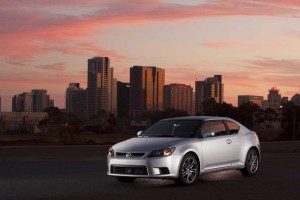Conventional wisdom suggests that young buyers will turn away from the products their parents drove – potentially good news for Detroit’s Big Three who collectively lost the big Baby Boom generation to the imports.
New models, such as the Ford Fiesta, are specifically targeting Generation-Y, and the success of those products could determine whether Detroit reverses decades of market share losses, particularly in trendy coastal regions, such as California, where domestic brands account for barely one in four current car sales. (Click Here to find out which are the most “patriotic” automotive markets.)
Unfortunately for the Motor City, a new study suggests that while Gen-Y might be turning away from some traditionally strong Japanese marques, like Toyota and Honda, those young buyers are continuing to focus on Asian, rather than American, automakers.
Millennial buyers, between ages 18 and 27, are, if anything, giving new hope to some of the smaller Japanese brands. At the top of their list, according to research firm TrueCar.com, are Scion, followed by Mitsubishi, Mazda and Nissan. Volkswagen, ranked fifth, was the only non-Asian brand in the Top 10, which was rounded out by Kia, Hyundai, Honda, Toyota and Subaru.
The highest-ranked domestic maker, Chrysler, could only make it to the number 12 spot.
Jesse Toprak, TrueCar.com’s lead analyst, suggested that the data is “something to worry about” for Detroit, especially as domestic makers continue shifting from their traditional big truck lines to smaller, more fuel-efficient passenger cars.
Of course, that transition is still a work in progress. It remains to be seen if Detroit will start gaining more momentum as more youth-oriented offerings come to market, like the new Chevrolet Sonic minicar.
Young buyers traditionally don’t have much cash, so the percentage of Gen-Y drivers who can purchase new vehicles is small, and brand loyalty could shift as more boost income and come into the market. But industry marketers traditionally try to target young, first-time buyers hoping to keep them in the family as they grow older.
That was a key strategy behind the launch of Scion, the youth-oriented Toyota brand. The Japanese giant was worried, company officials have acknowledged, that the children of the Baby Boomers might migrate elsewhere, and the fact that Toyota ranked only ninth in the TrueCar study – it is third in the overall US. Market – underscores that concern.
Toprak suggested Scion is paying off for Toyota, but other recent studies question that assumption, indicating that earlier Scion owners are not necessarily showing the anticipated brand loyalty, many shifting to other marques when they trade in.
Significantly, Honda scored only slightly better than Toyota, in the tenth spot – behind Korean upstarts Kia and Hyundai, both of which are trying to shift perceptions, emphasizing hip, high-feature products rather than focusing on bargain-basement pricing.
If any maker might celebrate TrueCar’s data it’s Mitsubishi, a brand that has seen its sales collapse over the last decade. The maker has long targeted young buyers but recent offerings, like the latest version of the sporty Eclipse coupe, appeared to miss the mark. Some analysts had expected Mitsubishi to abandon the U.S. market, but the study suggests the maker might have a chance to pull off a comeback when it completely shifts the model mix it plans to produce at its assembly plant in Normal, Illinois next year.
It would be a mistake to downplay the data and ignore the newest generation of buyers, stressed TrueCar’s Toprak, cautioning, “Generation Y buyers are very important to automakers because they help set trends from popularizing social media sites such as Facebook or Twitter or technologies such as the iPhone and iPod.”
When it comes to specific models purchased by Gen-Y in 2009 and 2010, the Scion tC coupe was the most popular model, followed by the Mitsubishi Lancer and Honda Civic Si.
The Ford Focus Coupe, fifth on the Gen Y list, was the only domestic in the Top 10 – but, significantly, it required the heftiest incentives to win shoppers over. According to the study, the average Gen Y buyer paid $15,040 for the Ford 2-door, as 13.4% discount off its $17,365 list. By comparison, the discounts on the other Top 10 models ranged from just 0.3% for the Scion tC to 8.9% for the Kia Forte.
Reflecting the tight budgets of Gen-Y buyers, the most expensive model on the list was the Volkswagen GLI, which had an average transaction price of $24,635 – thousands less than the price of the average vehicle sold in the U.S. during the period TrueCar analyzed.

